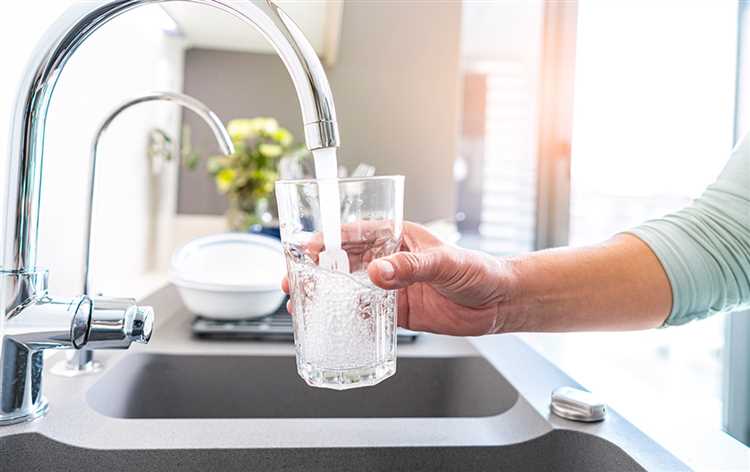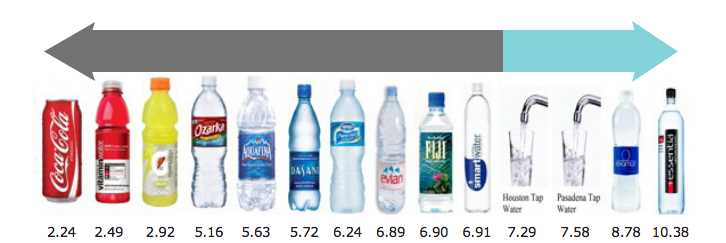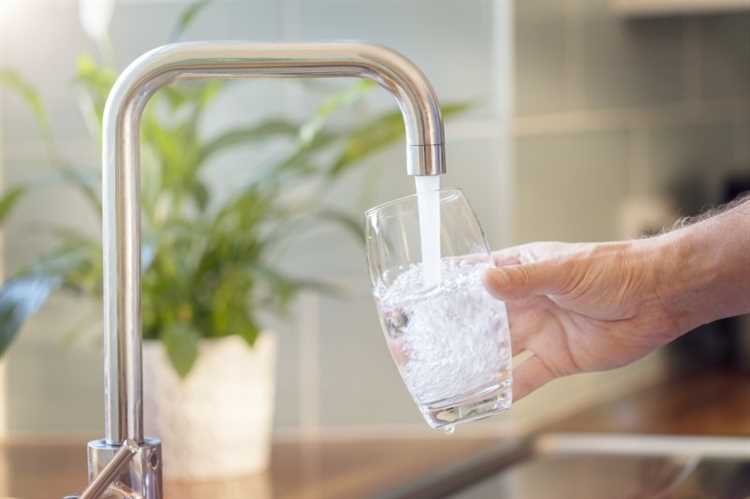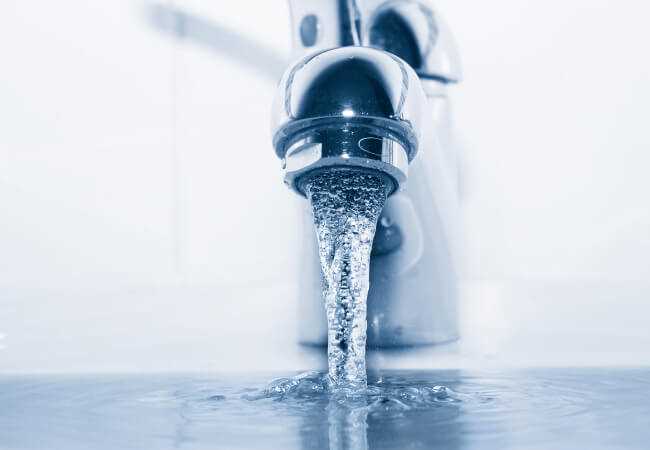
Tap water may not be the most glamorous choice when it comes to beverage options, but it can have significant benefits for dental health. While many people turn to bottled water or other flavored drinks, tap water is a simple and affordable option that can help maintain a healthy smile.
One of the key benefits of tap water is its fluoride content. Fluoride is a mineral that has been proven to strengthen tooth enamel and protect against cavities. In fact, the Centers for Disease Control and Prevention (CDC) considers water fluoridation to be one of the top 10 public health achievements of the 20th century. By drinking tap water, you can reap the benefits of this natural cavity fighter.
Another advantage of tap water is that it doesn’t contain added sugars. Many popular drinks, such as soda and fruit juice, are packed with sugar, which can contribute to tooth decay and cavities. Choosing tap water instead can help reduce your intake of sugar and protect your dental health.
- Tap Water: A Natural and Beneficial Source for Dental Health
- The Importance of Fluoride in Tap Water for Strong Teeth
- How Tap Water Helps Prevent Cavities and Tooth Decay
- Tap Water: A Cost-Effective Alternative to Bottled Water for Dental Health
- A Sustainable Choice: Tap Water Reduces Plastic Waste and Benefits Dental Health
- The Role of Tap Water in Overall Oral Hygiene and Fresh Breath
- Fluoride for Strong Teeth
- Rinsing Away Food Particles and Bacteria
- An Affordable and Accessible Option
- Question-answer:
- How does tap water affect dental health?
- Is tap water better for dental health than bottled water?
- How much tap water should I drink for good dental health?
- What are the other benefits of drinking tap water for dental health?
Tap Water: A Natural and Beneficial Source for Dental Health
Tap water is often taken for granted, but it is a natural and beneficial source for dental health. Unlike bottled water or other beverages, tap water contains fluoride, a mineral that helps to strengthen tooth enamel and prevent tooth decay.
When you drink tap water, the fluoride is absorbed into your teeth, providing a protective barrier against acids and bacteria that can cause cavities. This is especially important for children, as fluoride can also help with the development of their permanent teeth.
In addition to the enamel-strengthening benefits, tap water also helps to keep your mouth hydrated. Proper hydration is essential for saliva production, which is necessary for maintaining a healthy pH balance in your mouth. Saliva helps to neutralize acids, wash away food particles, and fight against bad breath.
Drinking tap water can also be a healthier choice for your teeth compared to sugary drinks. Sodas, fruit juices, and sports drinks often contain high levels of sugar, which can contribute to tooth decay and gum disease. By choosing tap water, you can enjoy a refreshing and calorie-free drink that won’t harm your dental health.
It’s important to note that not all tap water contains fluoride, so it’s a good idea to check with your local water provider or have your water tested. If your tap water doesn’t have fluoride, you may want to consider using a fluoride toothpaste or mouthwash to ensure you’re getting the necessary benefits for your dental health.
In conclusion, tap water is a natural and beneficial source for dental health due to its fluoride content and hydrating properties. By choosing tap water over sugary drinks, you can help protect your teeth from cavities and maintain a healthy smile.
The Importance of Fluoride in Tap Water for Strong Teeth

Fluoride is a natural mineral that plays a vital role in maintaining strong and healthy teeth. It is found in various sources, including tap water. Many communities add fluoride to their water supply to help prevent tooth decay.
When you drink tap water with fluoride, it helps to strengthen your tooth enamel. Enamel is the outer layer of your teeth that protects them from decay and damage. Fluoride works by remineralizing the enamel, making it more resistant to acid attacks from bacteria and plaque.
For children, fluoride is especially important as their teeth are still developing. Drinking fluoridated tap water can help ensure that their teeth grow strong and resistant to decay. It can also reverse the early stages of tooth decay, known as dental caries.
Studies have shown that communities with fluoridated water have significantly lower rates of tooth decay compared to those without. In fact, the Centers for Disease Control and Prevention (CDC) has recognized water fluoridation as one of the top ten public health achievements of the 20th century.
However, it’s important to note that excessive fluoride consumption can lead to dental fluorosis, a condition that causes white specks or streaks to appear on the teeth. This condition is usually mild and cosmetic, but in rare cases, it can lead to more severe forms of fluorosis.
In conclusion, tap water with fluoride is an essential component in maintaining strong and healthy teeth. It helps to strengthen tooth enamel, prevent tooth decay, and promote overall dental health. Drinking fluoridated water is especially beneficial for children, as it supports proper tooth development and can reverse early signs of decay. However, it’s crucial to consume fluoride in moderation to avoid the risk of dental fluorosis.
How Tap Water Helps Prevent Cavities and Tooth Decay
Tap water, particularly fluoridated tap water, plays a vital role in preventing cavities and tooth decay. Fluoride is a naturally occurring mineral that helps strengthen the enamel of our teeth, making them more resistant to acid attacks from bacteria and sugars in our diet.
When we drink tap water, the fluoride it contains becomes incorporated into the structure of our developing teeth and helps protect them from decay. This is especially important for children whose teeth are still forming.
Fluoridated tap water can also have a preventive effect on existing teeth. When we consume fluoridated water, it helps to replenish the fluoride levels in our saliva, which then acts as a natural defense against cavities. Saliva plays a crucial role in maintaining oral health by washing away food particles and neutralizing harmful acids in the mouth.
In areas where tap water is not fluoridated or the fluoride concentration is low, individuals may be at a higher risk of developing cavities and tooth decay. In these cases, using fluoride toothpaste and mouth rinses, as well as considering fluoride treatments recommended by a dentist, can help provide additional protection.
In conclusion, tap water, especially when it’s fluoridated, is a simple and effective way to prevent cavities and tooth decay. By incorporating fluoride into our dental hygiene routine, we can ensure that our teeth are stronger and healthier, and that we maintain good oral health for a lifetime.
Tap Water: A Cost-Effective Alternative to Bottled Water for Dental Health
When it comes to maintaining good dental health, many people turn to bottled water as their beverage of choice. However, tap water can be a cost-effective and equally beneficial alternative.
One of the main advantages of tap water is that it contains fluoride. Fluoride is a mineral that helps prevent tooth decay and strengthen tooth enamel. In fact, many cities and municipalities add fluoride to their tap water to promote dental health. Drinking tap water can therefore help protect your teeth and reduce the risk of cavities.
Another advantage of tap water is that it is readily available and affordable. Unlike bottled water, which needs to be purchased and transported, tap water is accessible to everyone at a fraction of the cost. This means that drinking tap water can save you money while still promoting dental health.
In addition, tap water is often subject to higher quality standards and regulations compared to bottled water. Municipalities regularly test and treat tap water to ensure its safety and purity. On the other hand, the quality of bottled water can vary, and it may not always meet the same strict standards. By choosing tap water, you can have peace of mind knowing that you are consuming a safe and reliable product.
Finally, drinking tap water is also more environmentally friendly. Bottled water production requires significant amounts of energy and resources, contributing to pollution and waste. By opting for tap water, you can reduce your carbon footprint and help preserve the planet for future generations.
In conclusion, tap water is a cost-effective alternative to bottled water for dental health. It contains fluoride, is readily available and affordable, meets high quality standards, and is more environmentally friendly. By choosing tap water, you can take care of your teeth, save money, and contribute to a healthier planet.
A Sustainable Choice: Tap Water Reduces Plastic Waste and Benefits Dental Health
Choosing tap water over bottled water is not only a healthier choice for your teeth, but it is also a more sustainable option that helps reduce plastic waste. By opting for tap water, you can contribute to a more environmentally-friendly lifestyle while enjoying the benefits of improved dental health.
Plastic waste from single-use water bottles is a major contributor to pollution and environmental damage. These bottles often end up in landfills or our oceans, where they take hundreds of years to decompose. By choosing tap water, you can significantly reduce your plastic footprint and help protect the planet for future generations.
In addition to being an eco-friendly choice, tap water also plays a crucial role in maintaining good dental health. Most tap water contains fluoride, a mineral that helps strengthen tooth enamel and prevent tooth decay. Drinking tap water regularly can help remineralize your teeth and reduce the risk of cavities.
Many bottled waters, on the other hand, do not contain fluoride. This means that drinking them exclusively may put you at a higher risk of developing dental problems. By drinking tap water that is fluoridated, you can ensure that your teeth receive the necessary protection.
Furthermore, tap water is typically treated and regulated to ensure its quality and safety. Public water systems are subject to strict testing and monitoring standards, which help guarantee that the water you drink is clean and free from harmful contaminants. This oversight is not always present in the production and distribution of bottled water.
By making the switch to tap water, you can enjoy the benefits of improved dental health and contribute to a more sustainable future. Remember to drink tap water regularly, practice good oral hygiene, and visit your dentist regularly to maintain optimal dental health.
The Role of Tap Water in Overall Oral Hygiene and Fresh Breath

Tap water is not only an essential resource for our daily needs, but it also plays a crucial role in maintaining overall oral hygiene and fresh breath. The advantages of using tap water are often overlooked, but they can greatly contribute to a healthy mouth and teeth.
Fluoride for Strong Teeth

One of the main benefits of tap water is its fluoride content. Fluoride is a mineral that helps prevent tooth decay and strengthens the enamel, the outer layer of the teeth. When we drink tap water, the fluoride it contains is absorbed by our teeth, providing a protective layer that can resist acid attacks from bacteria and sugary foods.
Dental studies have shown that communities with fluoridated water have seen a significant reduction in cavities compared to areas without fluoride in their water supply. This is especially important for children, as fluoride consumption during tooth development can lead to stronger and healthier permanent teeth.
Rinsing Away Food Particles and Bacteria
Another advantage of tap water for oral hygiene is its ability to rinse away food particles and bacteria. After eating, especially if we consume sugary or acidic foods, these particles can stick to our teeth and gums, promoting the growth of harmful bacteria that can cause cavities and gum disease.
Drinking water, particularly tap water, can help flush out these particles and bacteria, reducing the risk of plaque buildup and bad breath. Additionally, staying hydrated by drinking water throughout the day ensures that saliva production remains adequate, further aiding in the natural cleaning and remineralization process of the teeth.
An Affordable and Accessible Option

Tap water is a cost-effective and easily accessible option for maintaining good oral hygiene. Unlike bottled water, it is usually free or available at a very low cost, making it an economical choice for regular consumption and oral care.
Furthermore, tap water is more sustainable and environmentally friendly compared to bottled water, which generates plastic waste. By choosing tap water, we not only improve our dental health but also contribute to the conservation of natural resources.
In conclusion, tap water provides essential benefits for overall oral hygiene and fresh breath. With its fluoride content, it strengthens teeth and helps prevent cavities. By rinsing away food particles and bacteria, it reduces the risk of plaque buildup and gum disease. Additionally, tap water is an affordable and accessible option, making it an excellent choice for maintaining good oral health.
Question-answer:
How does tap water affect dental health?
Tap water can have a positive effect on dental health because it often contains fluoride, which helps to strengthen tooth enamel and prevent tooth decay. Additionally, drinking water in general can help to rinse away food particles and bacteria, reducing the risk of dental problems.
Is tap water better for dental health than bottled water?
Tap water can be better for dental health than bottled water in some cases. This is because many municipal water supplies have fluoride added, while most bottled waters do not. Fluoride is important for strengthening tooth enamel and preventing tooth decay. However, it’s important to note that not all tap water is fluoridated, so it’s best to check with your local water utility to see if fluoride is added in your area.
How much tap water should I drink for good dental health?
There is no specific amount of tap water that you need to drink for good dental health. However, it is generally recommended to drink at least eight glasses of water per day to stay hydrated and promote overall health. Drinking water, including tap water, can help to rinse away food particles and bacteria that can cause dental problems, so including it as part of your daily fluid intake is beneficial.
What are the other benefits of drinking tap water for dental health?
In addition to providing fluoride, tap water can have other benefits for dental health. Drinking water can help to stimulate saliva production, which is important for maintaining a healthy mouth. Saliva helps to neutralize acids, remineralize teeth, and wash away bacteria and food particles. Staying hydrated by drinking water can also help to prevent dry mouth, which can increase the risk of tooth decay and other oral health problems.